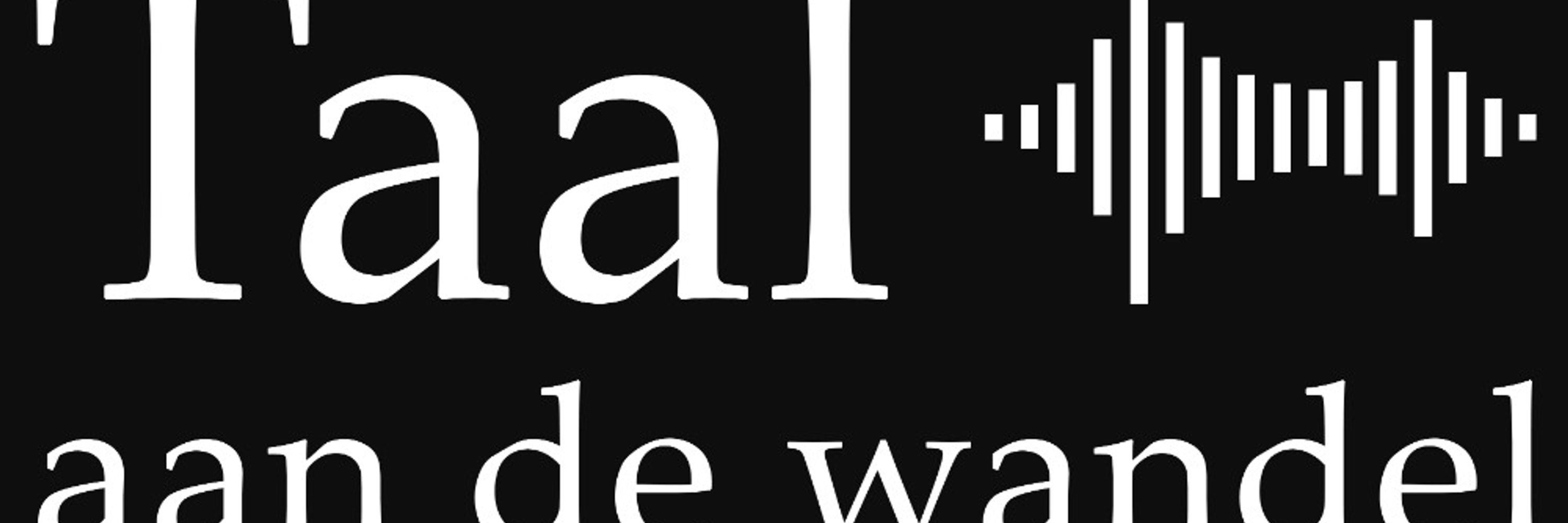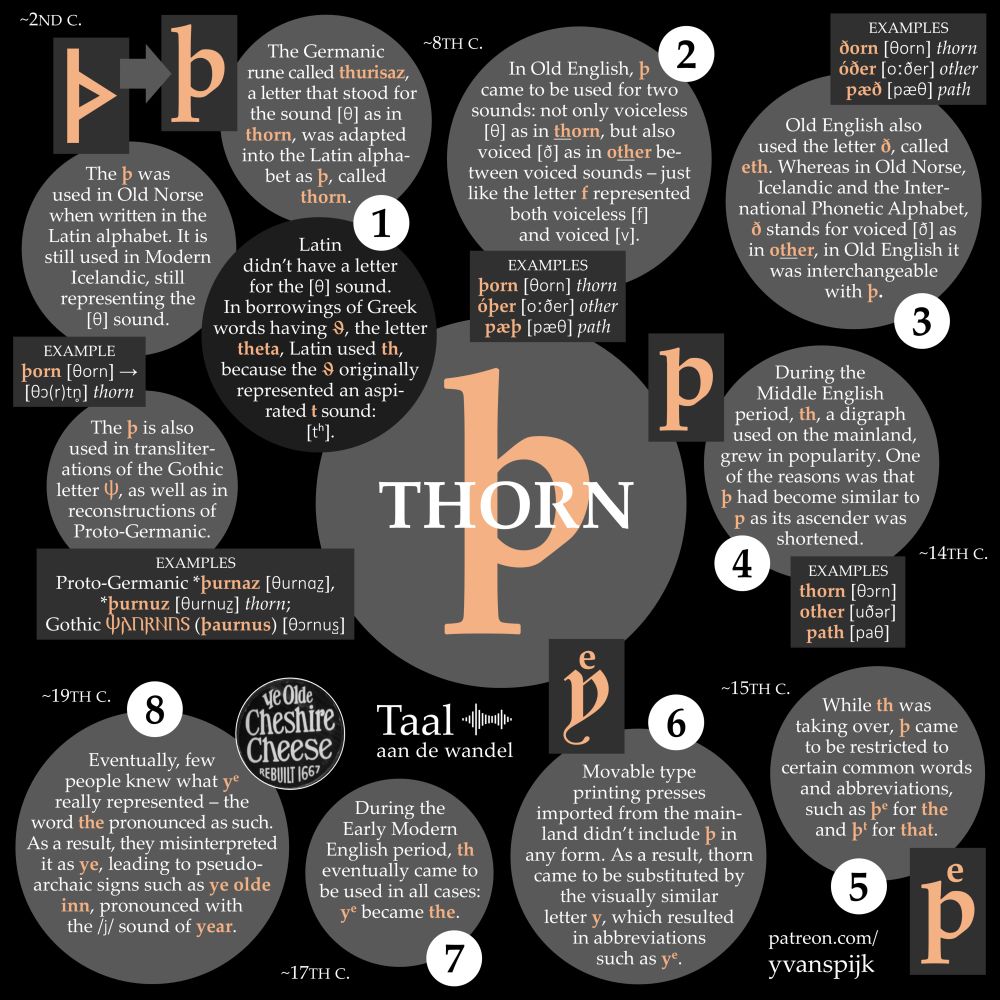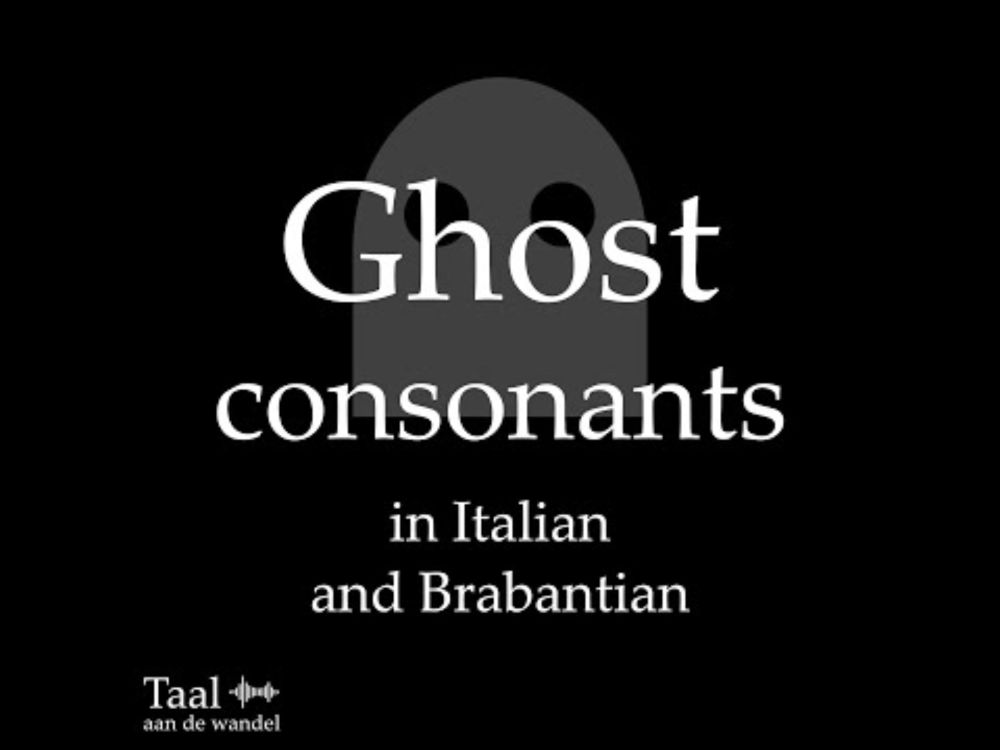
• taalkundige | linguist
• schrijver van 'Die goeie ouwe taal' | author
• all graphics and videos: http://tumblr.com/yvanspijk
• Patreon: patreon.com/yvanspijk
• links: linktr.ee/yvanspijk
• photo by Dirk-Jan van Dijk

The pronunciation with y is due to a misinterpretation.
'Ye' originated as a second-best way of writing 'þe', þ being thorn, the original English letter for the th sound.
Click my new infographic to read the story of thorn:
Dan hebben Onze Taal en ik het ideale cadeau voor in de schoen: mijn nieuwe boek 'Woord voor woord: de verleden tijd van taal'.
Te koop in de winkel en online:
onzetaalwebwinkel.nl/woord-voor-w...

Dan hebben Onze Taal en ik het ideale cadeau voor in de schoen: mijn nieuwe boek 'Woord voor woord: de verleden tijd van taal'.
Te koop in de winkel en online:
onzetaalwebwinkel.nl/woord-voor-w...
Dan hebben Onze Taal en ik het ideale cadeau voor in de schoen: mijn nieuwe boek 'Woord voor woord: de verleden tijd van taal'.
Te koop in de winkel en online:
onzetaalwebwinkel.nl/woord-voor-w...

Dan hebben Onze Taal en ik het ideale cadeau voor in de schoen: mijn nieuwe boek 'Woord voor woord: de verleden tijd van taal'.
Te koop in de winkel en online:
onzetaalwebwinkel.nl/woord-voor-w...
While ‘blue’ is related to the words in its Germanic sister languages, such as German ‘blau’ and Swedish ‘blå’, it took a different route.
Its Germanic ancestor was loaned to French, where it became ‘bleu’, and then borrowed into English:

While ‘blue’ is related to the words in its Germanic sister languages, such as German ‘blau’ and Swedish ‘blå’, it took a different route.
Its Germanic ancestor was loaned to French, where it became ‘bleu’, and then borrowed into English:
While ‘blue’ is related to the words in its Germanic sister languages, such as German ‘blau’ and Swedish ‘blå’, it took a different route.
Its Germanic ancestor was loaned to French, where it became ‘bleu’, and then borrowed into English:

While ‘blue’ is related to the words in its Germanic sister languages, such as German ‘blau’ and Swedish ‘blå’, it took a different route.
Its Germanic ancestor was loaned to French, where it became ‘bleu’, and then borrowed into English:
Their common Germanic ancestor had different stems for different case forms.
‘Yellow’ and ‘gelb’ come from the stem that was used in most cases, while ‘geel’ continues the nominative case.
Here’s more:

Their common Germanic ancestor had different stems for different case forms.
‘Yellow’ and ‘gelb’ come from the stem that was used in most cases, while ‘geel’ continues the nominative case.
Here’s more:
Their common Germanic ancestor had different stems for different case forms.
‘Yellow’ and ‘gelb’ come from the stem that was used in most cases, while ‘geel’ continues the nominative case.
Here’s more:

Their common Germanic ancestor had different stems for different case forms.
‘Yellow’ and ‘gelb’ come from the stem that was used in most cases, while ‘geel’ continues the nominative case.
Here’s more:
In Italian and Brabantian, consonants that were lost long ago still have an effect in the modern language.
Learn all about these fascinating ghost consonants in my new short video:
youtu.be/w-LDMJweRis

In Italian and Brabantian, consonants that were lost long ago still have an effect in the modern language.
Learn all about these fascinating ghost consonants in my new short video:
youtu.be/w-LDMJweRis
Maar in allebei vind je mijn favoriete fenomeen: spookmedeklinkers.
Dat zijn gesneuvelde medeklinkers die nog altijd een effect op andere woorden hebben.
Vandaag heb ik ook een Nederlandse versie van de video gemaakt:
youtu.be/aV134bGlo_8
Maar in allebei vind je mijn favoriete fenomeen: spookmedeklinkers.
Dat zijn gesneuvelde medeklinkers die nog altijd een effect op andere woorden hebben.
Vandaag heb ik ook een Nederlandse versie van de video gemaakt:
youtu.be/aV134bGlo_8
Maar in allebei vind je mijn favoriete fenomeen: spookmedeklinkers.
Dat zijn gesneuvelde medeklinkers die nog altijd een effect op andere woorden hebben.
Vandaag heb ik ook een Nederlandse versie van de video gemaakt:
youtu.be/aV134bGlo_8
Maar in allebei vind je mijn favoriete fenomeen: spookmedeklinkers.
Dat zijn gesneuvelde medeklinkers die nog altijd een effect op andere woorden hebben.
Vandaag heb ik ook een Nederlandse versie van de video gemaakt:
youtu.be/aV134bGlo_8
In Italian and Brabantian, consonants that were lost long ago still have an effect in the modern language.
Learn all about these fascinating ghost consonants in my new short video:
youtu.be/w-LDMJweRis

In Italian and Brabantian, consonants that were lost long ago still have an effect in the modern language.
Learn all about these fascinating ghost consonants in my new short video:
youtu.be/w-LDMJweRis

Voor wie van een stevig potje taalhistorisch graafwerk houdt, heb ik dit nieuwe artikel geschreven - zoals gewoonlijk met audiovoorbeelden:
taalaandewandel.com/2025/11/13/e...

Voor wie van een stevig potje taalhistorisch graafwerk houdt, heb ik dit nieuwe artikel geschreven - zoals gewoonlijk met audiovoorbeelden:
taalaandewandel.com/2025/11/13/e...
Voor wie van een stevig potje taalhistorisch graafwerk houdt, heb ik dit nieuwe artikel geschreven - zoals gewoonlijk met audiovoorbeelden:
taalaandewandel.com/2025/11/13/e...

Voor wie van een stevig potje taalhistorisch graafwerk houdt, heb ik dit nieuwe artikel geschreven - zoals gewoonlijk met audiovoorbeelden:
taalaandewandel.com/2025/11/13/e...
These words all stem from Latin ‘brevis’, meaning “short”.
Zoom in on my new infographic to learn how it came to mean “letter” in many Germanic languages:

These words all stem from Latin ‘brevis’, meaning “short”.
Zoom in on my new infographic to learn how it came to mean “letter” in many Germanic languages:

These words all stem from Latin ‘brevis’, meaning “short”.
Zoom in on my new infographic to learn how it came to mean “letter” in many Germanic languages:
These words all stem from Latin ‘brevis’, meaning “short”.
Zoom in on my new infographic to learn how it came to mean “letter” in many Germanic languages:

These words all stem from Latin ‘brevis’, meaning “short”.
Zoom in on my new infographic to learn how it came to mean “letter” in many Germanic languages:
Huh? dacht ik. 'Fraaie' kan ik me niet herinneren.
En inderdaad: in de tekst staat 'in de vrije natuur'.
Geen zuidelijke kinderen dus. :)
Huh? dacht ik. 'Fraaie' kan ik me niet herinneren.
En inderdaad: in de tekst staat 'in de vrije natuur'.
Geen zuidelijke kinderen dus. :)
Their common ancestor came from Latin ‘paraverēdus’ (substitute post-horse), a word composed of an Ancient Greek element and a Gaulish one.
Zoom in on my new infographic to learn everything about it:

Their common ancestor came from Latin ‘paraverēdus’ (substitute post-horse), a word composed of an Ancient Greek element and a Gaulish one.
Zoom in on my new infographic to learn everything about it:
Their common ancestor came from Latin ‘paraverēdus’ (substitute post-horse), a word composed of an Ancient Greek element and a Gaulish one.
Zoom in on my new infographic to learn everything about it:

Their common ancestor came from Latin ‘paraverēdus’ (substitute post-horse), a word composed of an Ancient Greek element and a Gaulish one.
Zoom in on my new infographic to learn everything about it:
Ik licht wat Brabantse voorbeelden uit in mijn artikel 'Brabantse spraakverwarring'.
Daarbij haal ik herinnering op aan toen mijn tafelgenote dacht dat ik een ontzettend druk seksleven had...
www.erfgoedbrabant.nl/projecten/br...
Ik licht wat Brabantse voorbeelden uit in mijn artikel 'Brabantse spraakverwarring'.
Daarbij haal ik herinnering op aan toen mijn tafelgenote dacht dat ik een ontzettend druk seksleven had...
www.erfgoedbrabant.nl/projecten/br...



